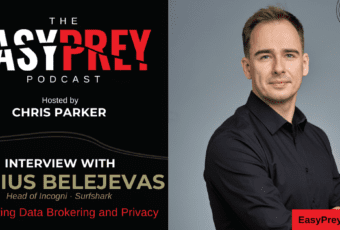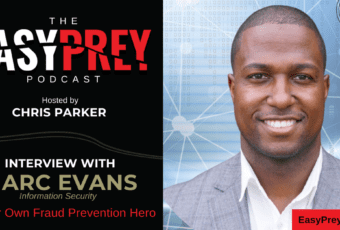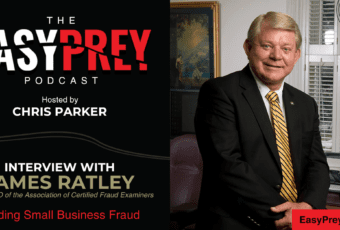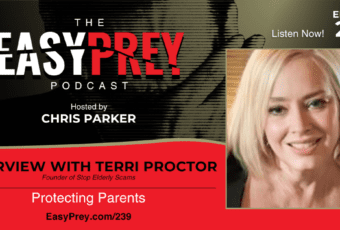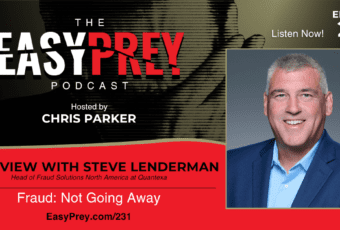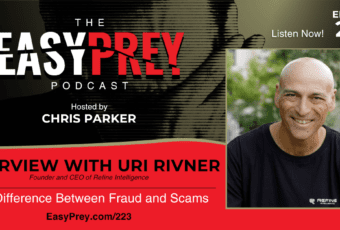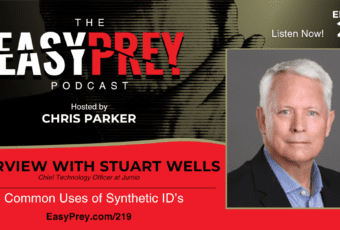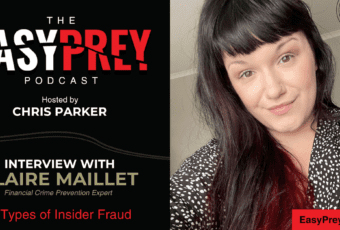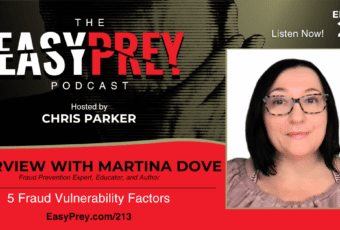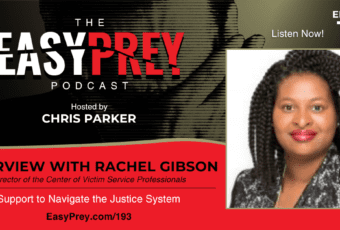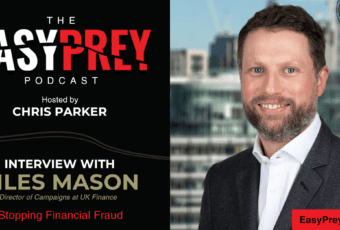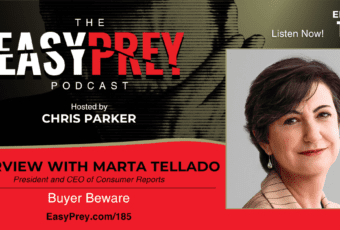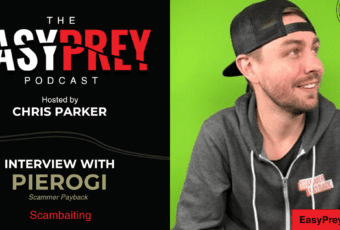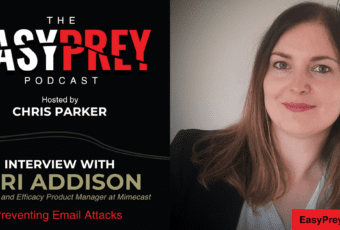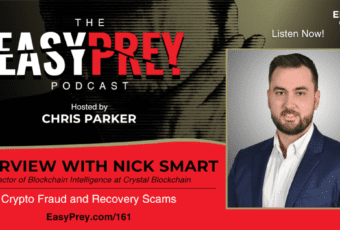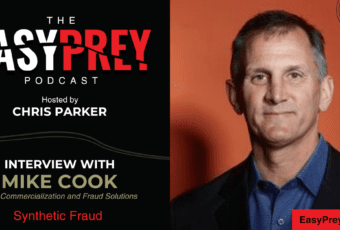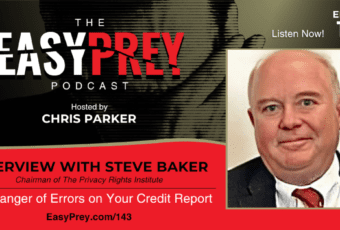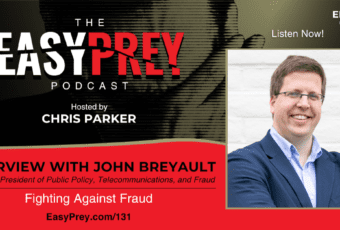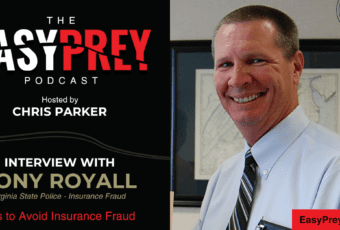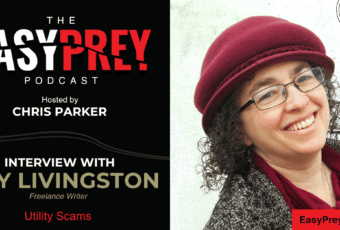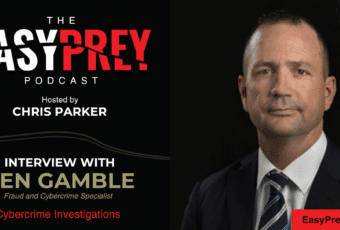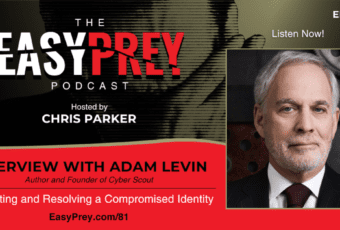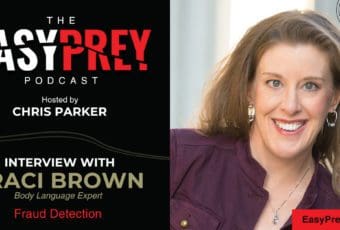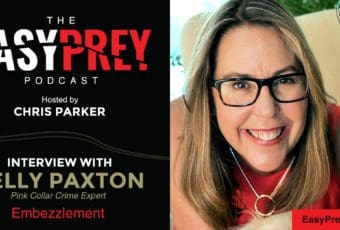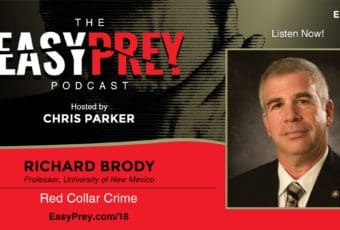In a world where data is more important than ever, understanding how it is acquired, shared, and misused is critical. This data powers targeted marketing, scams, and even identity theft. But what can be done to regain control of personal privacy? Today we’re diving deep into this topic with cybersecurity expert Darius Belejevas, who has spent years assisting folks in removing their data from these digital marketplaces. He is the head of Incogni and Surfshark.
Getting defrauded is common. It happens everywhere but it’s underreported because of embarrassment. If you’re a victim of fraud the sooner you report the more likely you are to get a better outcome. ’m pleased to welcome Marc Evans, a seasoned financial crimes detective and co-founder of Fraud Hero, who has spent over a decade investigating fraud schemes that affect everyday people.
James Ratley graduated from the University of Texas at Dallas with a bachelor’s degree in Business Administration. In 1971, he joined the Dallas Police Department as a police officer. He was on numerous task forces with a concentration on major fraud cases. He joined a major forensic accounting practice and was in charge of fraud investigations.
Sometimes people only share their stories after they’ve gone through a challenging time. But it’s also important to learn from those in the middle of a scam to learn how people are manipulated and how vulnerable our loved ones can really be.
Synthetic IDs can be used to open fake accounts, but without a person to file the fraud claim, how should companies deal with this type of deceit? There is no crime where someone doesn’t need to pay for the loss. Either way, the loss is passed on to the consumers in some way or another.
Today’s guest is Uri Rivner. Uri has been fighting financial crime for 20 years working closely with the world’s largest banks on developing strategies against online fraud and scams. Innovations Uri spearheaded, such as risk-based authentication, are now saving the industry billions of dollars each year in fraud.
There are entire communities set up to fight fraud that use synthetic IDs as well as scammer gangs that are advancing their creative ways to use these documents. This is changing regularly as biometric authentication advances continue.
Today’s guest is Claire Mailet. Claire is an award-winning financial crime prevention expert and has worked in the field for over ten years. In her spare time, Claire assists universities in the UK to support staff and students who stammer and she’s currently undertaking a part-time Ph.D at the University of Portsmouth, looking at internal fraud in FinTechs.
Understanding our cognitive biases can help us realize that we sometimes are too trusting of emails, texts, or calls from someone we perceive to be an authority. Today’s guest is Martina Dove. Martina is a researcher with a fervent passion for fraud prevention. Her expertise focuses on persuasion, scam techniques, and individual characteristics that make people susceptible to fraud. She is passionate about fighting fraud by teaching people how to spot scammer techniques and has recently published a book on fraud psychology.
Everyday people are falling victims to scams and fraud. Embarrassment and guilt can prevent people from reporting the incident. Not everyone is aware that there are resources available to help navigate the justice system. Today’s guest is Rachel Gibson. Rachel is the Director of the Center of Victim Service Professionals at the National Center for Victims of Crime where she works to further the mission by supporting and overseeing programs for victim service professionals, providing training and technical assistance.
Scammers try to take advantage of human politeness. Utilizing critical thinking and slowing down conversations with someone who claims to be an authority like a government agency or bank could be what prevents us from making a financial mistake. Today’s guest is Giles Mason. Giles is the Director of Campaigns at UK Finance. He is responsible for planning and delivering the organization’s communication activities to promote campaigns on behalf of the banking and finance industry.
The burden is on consumers to question the validity of online offers because privacy laws and standards are not yet well regulated. Consumer Reports is fighting to make changes in this arena. Today’s guest is Marta Tellado. Marta is President and CEO of Consumer Reports, the independent non-profit that works side by side with consumers to create a fair and just marketplace. She is a market driven leader with a passion for innovation, public-service, philanthropy, and helping organizations maximize and improve the world.
Scammers have used our systems against us, like shipping, rental cars, and rental homes. They’ve learned how to stay off the radar and, in order to stop money laundering, we need to address fraud one step at a time. Today’s guest is Pierogi. Pierogi protects the innocent and vulnerable from internet scammers through his channel Scammer Payback. He exposes these criminals and helps victims through his technology and cybersecurity knowledge.
Today’s guest is Kiri Addison. Kiri is the Detection and Efficacy Product Manager at Mimecast, working on security products to defend against new and evolving threats. Previously she was head of data science for threat intelligence and has worked in the public sector creating systems to detect and prevent cyber attacks and fraud.
We are all being targeted by imposters on social media, websites, and dating sites. Once a person has been scammed, your information can be added to a database where criminals can purchase your data and then offer you “recovery assistance” from that scam. Today’s guest is Nick Smart. Nick has 18 years experience as a professional Intelligence and Security Analyst working for government agencies and private companies as well as experience as a compliance officer.
Millions have been impacted by data breaches. Many of us know how fraudsters work and how they utilize this information. But our parents and children become victims because of their fear or urgency inflicted by the scammers. Today’s guest is Mike Cook. Mike is an entrepreneur with over 30 years of experience working and serving in the financial services, wireless, cable/satellite, and auto financial industries. He has built several data breach applications in compliance, manual verification, and account management solutions.
Every time you pay a bill, data is sent to a credit reporting agency. Errors can be made. It’s important to know where to look to see if your credit information is correct, stolen, or purchased. Today’s guest is Steve Baker. Steve is chairman of the Privacy Rights Institute. He is a lawyer and previously served as a leader at the FTC for over 27 years addressing consumer fraud in areas like telemarketing and spamming. Steve now writes The Baker Fraud Report, a free weekly newsletter covering consumer fraud from around the world.
With financial payment platforms used more regularly to exchange cash between individuals, scammers have become more creative in using them to defraud users. Today’s guest is John Breyault. John is the National Consumers League Vice President of Public Policy, Telecommunications, and Fraud. As the director of Fraud.org, John is a nationally recognized expert in fraud, with more than 17 years of experience in educating consumers in advocating for stronger consumer protections at the federal, state, and local levels. He is the author of Fraud.org’s monthly Fraud Alert emails and NCL’s bi-weekly Data Insecurity Digest. He has testified before Congress, federal regulatory agencies, and state legislatures dozens of times about fraud related topics. He is quoted regularly in the press about fraud including The New York Times, Wall Street Journal, and Washington Post.
Predators look to take advantage of people during the roughest situations of life. A perpetrator of insurance fraud makes a career out of milking the system thinking it’s a victimless crime. Today’s guest is Officer Tony Royall. Officer Royall started in the Virginia Department of State Police in 1986. He worked in Accident Reproduction and then became an agent in Narcotics. Officer Royall has now been working in Insurance Fraud for the past 22 years.
Fraudsters are always looking for new ways to take advantage of people and going after something everybody uses, like household utilities, can be lucrative for them. Today’s guest is Amy Livingston. Amy is a freelance writer who has written on personal finance and consumer issues for Money Crashers and Consumer Search. Her personal blog Eco Frugal Living focuses on ways to save money and live green at the same time.
Today’s guest is Ken Gamble. Ken is a professional investigator, corporate security specialist, and cybercrime expert with 33 years of experience working for individuals and multinational corporations. He is the co-founder and executive chairman of IFW Global that conducts fraud investigations, asset tracking, fraud recovery, disruption and prevention of global cybercrime, monitoring enforcement actions to protect and recover assets for worldwide clients. He is the current Australian chairman of the International Association of Cybercrime Prevention, a non-profit association founded in Paris in 2006. Ken is an accomplished surveillance specialist and former surveillance advisor contractor to a commonwealth government agency in Australia and a consultant to numerous law enforcement agencies in the US, Asia, and Europe as well as several foreign governments.
Today’s guest is Adam Levin. As a graduate of Stanford University and the University of Michigan School of Law, Adam Levin is a nationally recognized expert on cybersecurity, privacy, identity theft, fraud, and personal finance. He is an author and the former director of the New Jersey Division of Consumer Affairs. Levin is the chairman and founder of Cyber Scout and co-founded Credit.com. He has been featured in the New York TImes, Associated Press, Wall Street Journal, The Los Angeles Times, USA Today, and The Chicago Tribune. In addition to that, he has appeared on The Today Show, Good Morning America, CBS Evening News, CNBC, MSN, and many others.
Traci Brown is a Body Language Expert and Certified Speaking Professional. She has studied lie and deception detection alongside law enforcement, FBI, and Army Green Berets. She is the author of several books including How to Detect Lies, Fraud, and Identity Theft Field Guide and hosts her own fraud detection podcast called Fraud Busting.
Kelly Paxton, also known as the Pink Crime Lady, has more than 25 years of investigation experience and is a certified fraud examiner and private investigator. She started her career in law enforcement as a special agent for the US Customs Office of Investigation in 1993. She has worked white collar crime, fraud, money laundering, embezzlement, and conflict of interest cases. Kelly is also the proud owner of Pink Collar Crime, a passion of hers about embezzlers in the workplace.
Our guest, Richard Brody, shares many experiences working in white-collar and red-collar crime. We also discuss ways to help you be more knowledgeable because education is the only solution.
